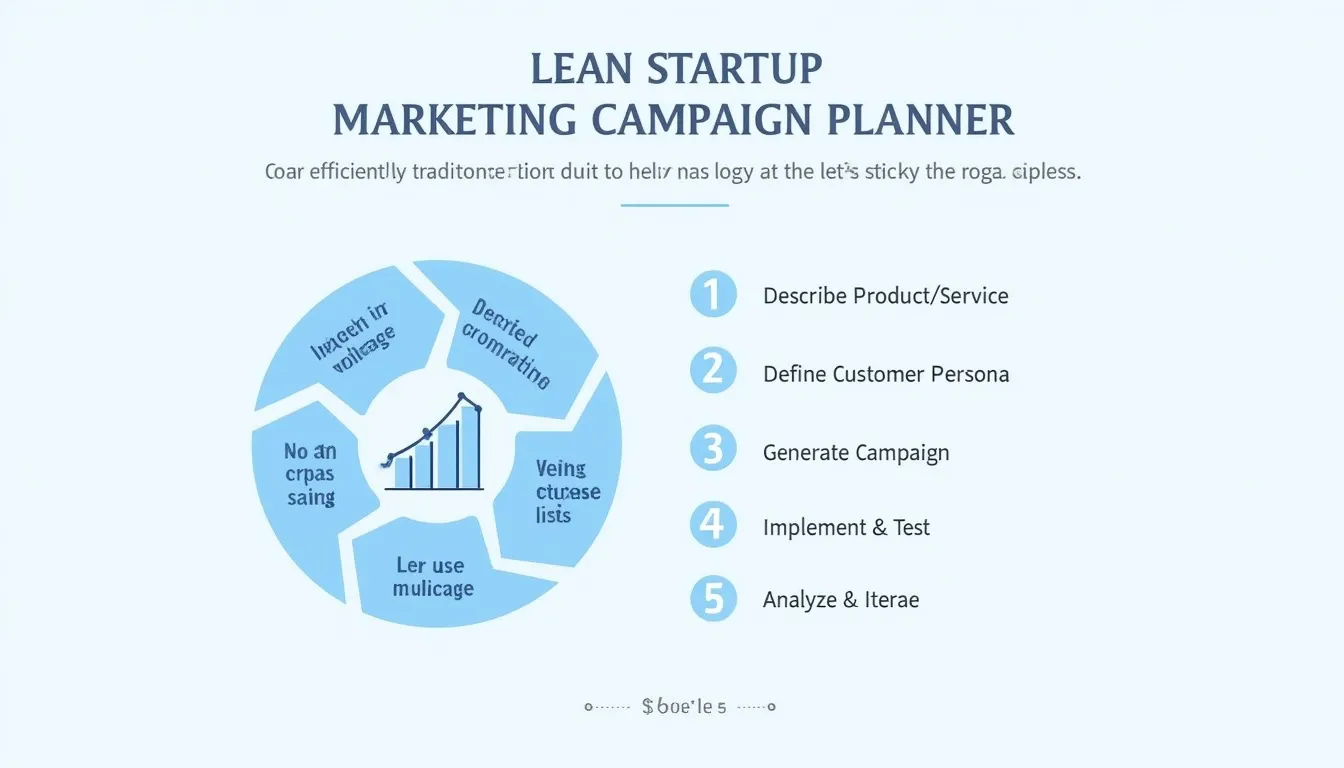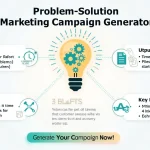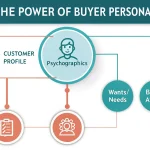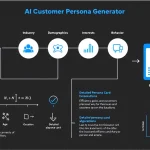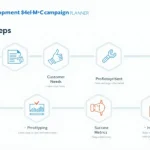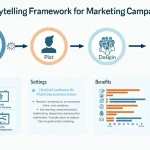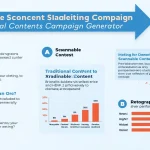Is this tool helpful?
How to Use the Lean Startup Marketing Campaign Generator Effectively
Maximize the benefits of the Lean Startup Marketing Campaign Generator by following these straightforward steps designed to help you craft a data-driven and customer-focused marketing strategy:
-
Describe your product or service: Use the first text area to provide a detailed description of your offering. Highlight key features, benefits, and what sets it apart in the market. Example inputs:
- “An eco-friendly reusable water bottle with built-in UV purification and smart hydration tracking.”
- “A virtual reality platform enabling interactive language learning through immersive scenarios.”
-
Define your ideal customer persona: In the second text area, outline your target audience by detailing demographics, behaviors, needs, and challenges. Example inputs:
- “College students aged 18-24, digitally native, environmentally conscious, seeking sustainable lifestyle products.”
- “Small business owners aged 30-50, interested in innovative training tools, budget-conscious, prefer online learning.”
- Submit your details: After completing both fields, click the “Generate Marketing Campaign” button to initiate the creation of your Lean Startup-inspired marketing plan.
- Analyze the output: The tool will produce a personalized marketing campaign outline based on Lean Startup principles, emphasizing rapid testing, customer feedback, and iterative growth.
- Copy and implement your campaign: Use the “Copy to Clipboard” option to save the generated strategy for easy integration into your marketing workflow.
Unlocking the Power of the Lean Startup Marketing Campaign Generator
The Lean Startup Marketing Campaign Generator is a cutting-edge tool crafted for entrepreneurs, startups, and marketing professionals seeking a structured, customer-centric framework to design and optimize their marketing strategies. Leveraging the core tenets of the Lean Startup methodology, this tool empowers businesses to experiment rapidly, gather actionable customer insights, and evolve their campaigns to achieve higher engagement and ROI.
What Is the Lean Startup Marketing Campaign Generator?
This intuitive generator serves as a bridge between Lean Startup theory and practical marketing application. It streamlines the process of developing marketing campaigns that prioritize:
- Rapid validation of marketing hypotheses through targeted experiments
- Customer feedback integration to refine messaging and tactics
- Minimization of wasted budget by focusing on high-impact strategies
- Continuous iteration for sustained marketing improvement
- Alignment of campaigns with actual customer needs and behaviors
Benefits of Using This Lean Startup Marketing Tool
- Accelerated Market Testing: Quickly validate assumptions to avoid costly missteps.
- Resource Optimization: Focus marketing budgets on experiments that deliver meaningful insights.
- Customer-Focused Campaigns: Develop strategies deeply rooted in your ideal customer’s profile.
- Adaptive Marketing Strategy: Enable rapid pivots based on data-driven learnings.
- Enhanced Scalability: Build a strong foundation for expanding successful campaigns effectively.
Practical Use Cases for the Marketing Campaign Generator
1. Launching a New Product or Service
Use this tool to design a marketing strategy that includes MVP-based experiments such as targeted landing pages, A/B testing messaging, and collecting early adopter feedback. This iterative process ensures you refine your value proposition before committing to large-scale campaigns.
2. Expanding into New Markets
Develop tailored marketing experiments targeting different demographics or geographic segments. Test regional messaging, test offers through small-scale ad sets, and adapt based on real customer reactions to validate new market potential efficiently.
3. Optimizing Existing Campaigns
Leverage the tool to analyze customer personas and align existing campaign elements to new insights. Introduce rapid, data-driven testing on ad creative, channels, or calls to action, allowing your team to refine messaging and improve conversion rates with minimal risk.
4. Developing Content Marketing Strategies
Generate hypotheses on what types of content engage your ideal customers. Use the tool to design iterative experiments across blogs, video, email campaigns, and social media that progressively enhance content relevance and reach.
Frequently Asked Questions About Lean Startup Marketing Campaigns
Q1: How quickly can I expect to see results from campaigns generated by this tool?
Results vary depending on your market and campaign scale, but the Lean Startup methodology encourages fast experimentation. Expect preliminary insights and feedback within a few weeks, enabling you to pivot or scale successfully.
Q2: Is this tool only suitable for startups?
Not at all. While rooted in startup principles, established businesses benefit greatly by applying Lean Startup marketing techniques to innovate and optimize new products, services, or campaigns.
Q3: How do I pick the right size for my marketing experiments?
Focus on conducting the smallest viable experiment that yields actionable data aligned with your objectives. Start lean with limited budgets or small test groups and scale as confidence grows in your assumptions.
Q4: What key metrics should I monitor during Lean Startup marketing experiments?
- Customer Acquisition Cost (CAC)
- Conversion Rate at each funnel stage
- Customer Lifetime Value (CLV)
- Engagement Metrics such as click-through rates and session duration
- Net Promoter Score (NPS) or satisfaction ratings
Q5: How often should I update my marketing campaign based on experiment findings?
Regular iteration every few weeks is recommended to maintain momentum and respond quickly to insights, ensuring your campaign remains agile and effective.
Q6: Can I use the generator for multiple products or different audience segments?
Absolutely. This tool supports creating distinct marketing campaigns tailored to different products or customer personas, enhancing targeted engagement and strategy precision.
Q7: How do I maintain brand consistency while experimenting with marketing tactics?
Establish your core brand identity and values clearly, then conduct experiments within these boundaries. Focus your tests on messaging angles, channels, and formats rather than core brand elements to preserve a cohesive image.
Why Choose the Lean Startup Marketing Campaign Generator?
- Effortless Experiment Design: Get a structured marketing framework without the need for complex planning from scratch.
- Customer-Aligned Strategies: Develop campaigns deeply rooted in your ideal customer’s context and challenges.
- Cost-Effective Validation: Test high-impact ideas rapidly and economically to save time and resources.
- Data-Driven Growth: Harness real market feedback to continuously refine your marketing tactics for sustained impact.
- Scalable Marketing Foundation: Build proven approaches you can scale confidently as your business grows.
By leveraging the Lean Startup Marketing Campaign Generator, entrepreneurs and marketing teams gain a powerful ally in navigating today’s dynamic markets with agility, focus, and customer-centric precision.
Important Disclaimer
The calculations, results, and content provided by our tools are not guaranteed to be accurate, complete, or reliable. Users are responsible for verifying and interpreting the results. Our content and tools may contain errors, biases, or inconsistencies. We reserve the right to save inputs and outputs from our tools for the purposes of error debugging, bias identification, and performance improvement. External companies providing AI models used in our tools may also save and process data in accordance with their own policies. By using our tools, you consent to this data collection and processing. We reserve the right to limit the usage of our tools based on current usability factors. By using our tools, you acknowledge that you have read, understood, and agreed to this disclaimer. You accept the inherent risks and limitations associated with the use of our tools and services.
